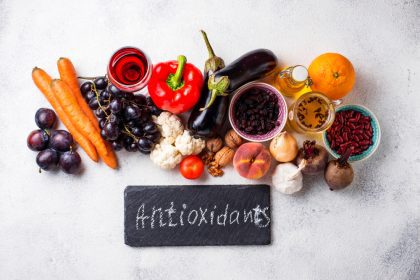The diet you have doesn’t just affect your waistline—it could also be influencing how fast your body ages. Recent research has uncovered a striking connection between diet quality and biological aging, particularly among young adults. A study involving 826 individuals aged 21 to 25 revealed that diets heavy in fast food, processed meats, and sugary drinks are linked to accelerated biological aging, while diets rich in fruits and vegetables appear to slow the process. Here’s a deep dive into the science, implications, and actionable insights from this groundbreaking research.
What is biological age, and why does it matter?
While chronological age is simply the number of years you’ve been alive, biological age reflects how well your body is aging at a cellular level. Unlike chronological age, which is fixed, biological age can be influenced by lifestyle factors such as diet, exercise, and stress. To measure biological age, scientists use advanced tools called epigenetic clocks, which analyze DNA methylation patterns—a type of epigenetic change that can silence gene activity.
Two key models were used in the recent study:
- GrimAge: This model estimates the difference between chronological and biological age, predicting lifespan based on the acceleration of aging.
- DunedinPACE: This model measures the pace of aging, indicating how many biological years pass for each year of chronological age.
Both models have been linked to health outcomes and mortality rates, making them valuable tools for understanding how lifestyle choices impact aging.
How diet influences biological aging
The study’s findings highlight the profound impact of dietary choices on biological aging. Participants who consumed high in fast food, processed meats, and sugary beverages showed signs of accelerated biological aging. On the other hand, those who ate rich in fruits, vegetables, and whole foods experienced slower aging processes.
What’s particularly striking is that these effects were observed in individuals as young as their early twenties. This suggests that poor dietary habits can have immediate consequences on cellular aging, even before clinical signs of age-related diseases like obesity or type 2 diabetes appear.
The science of epigenetics and aging
Epigenetics refers to changes in gene expression that don’t involve alterations to the underlying DNA sequence. These changes can be influenced by environmental factors, including diet. Methylation, a common type of epigenetic change, typically silences gene activity and plays a key role in regulating aging.
Research has consistently shown that a healthy diet can reduce the risk of chronic diseases and premature death. However, the relationship between diet and epigenetic markers of biological age has been less explored, especially in younger populations. This study fills a critical gap by focusing on young adults, a demographic often overlooked in dietary research.
Why young adults need to pay attention
The transition from adolescence to young adulthood is a critical period for establishing lifelong health habits. Unfortunately, this is also a time when dietary quality often declines, with many young adults opting for convenience foods high in sugar, salt, and unhealthy fats.
The study’s findings underscore the importance of addressing these dietary changes early on. By adopting healthier eating habits in their twenties, young adults can potentially slow their biological aging and reduce their risk of chronic conditions later in life.
Practical tips for a diet that slows aging
If you’re looking to optimize your diet for longevity, here are some actionable tips based on the study’s findings:
- Prioritize whole foods: Focus on fruits, vegetables, whole grains, lean proteins, and healthy fats. These foods are rich in nutrients that support cellular health and reduce inflammation.
- Limit processed foods: Cut back on fast food, processed meats, and sugary drinks, which have been linked to accelerated biological aging.
- Stay hydrated: Proper hydration is essential for cellular function and overall health. Aim for at least eight glasses of water a day.
- Incorporate antioxidants: Foods like berries, nuts, and leafy greens are packed with antioxidants that combat oxidative stress, a key driver of aging.
- Plan ahead: Meal prepping can help you avoid the temptation of unhealthy convenience foods during busy weeks.
The limitations and future of epigenetic research
While the study provides valuable insights, researchers acknowledge that the science of epigenetic clocks is still evolving. One limitation is the lack of diversity in the study population, as methylation patterns can vary by ethnic background. Future research will need to explore how dietary impacts on biological aging differ across diverse populations.
Additionally, scientists are keen to investigate the interplay between genetic risk factors, lifestyle choices, and biological aging. Understanding how environmental exposures influence aging will be a critical area of focus in the coming years.
The big picture: diet as a tool for longevity
The link between diet and biological aging is a burgeoning field of research with far-reaching implications. As we learn more about how dietary choices affect our biological clocks, it becomes increasingly clear that nutrition is a powerful tool for promoting health and longevity.
For young adults, the message is clear: the dietary choices you make today can have a lasting impact on how well you age. By prioritizing whole, nutrient-dense foods and minimizing processed options, you can take control of your biological aging and set the stage for a healthier future.
Final thoughts
Your diet is more than just fuel—it’s a key factor in determining how fast your body ages. The latest research highlights the importance of making informed nutritional decisions, especially during young adulthood. While the science of epigenetic clocks is still evolving, the evidence is clear: a diet rich in fruits, vegetables, and whole foods can help slow biological aging and promote long-term health.
As we continue to uncover the intricate connections between what you eat and aging, one thing is certain: what you eat today will shape how you age tomorrow. So, why not make every bite count?















